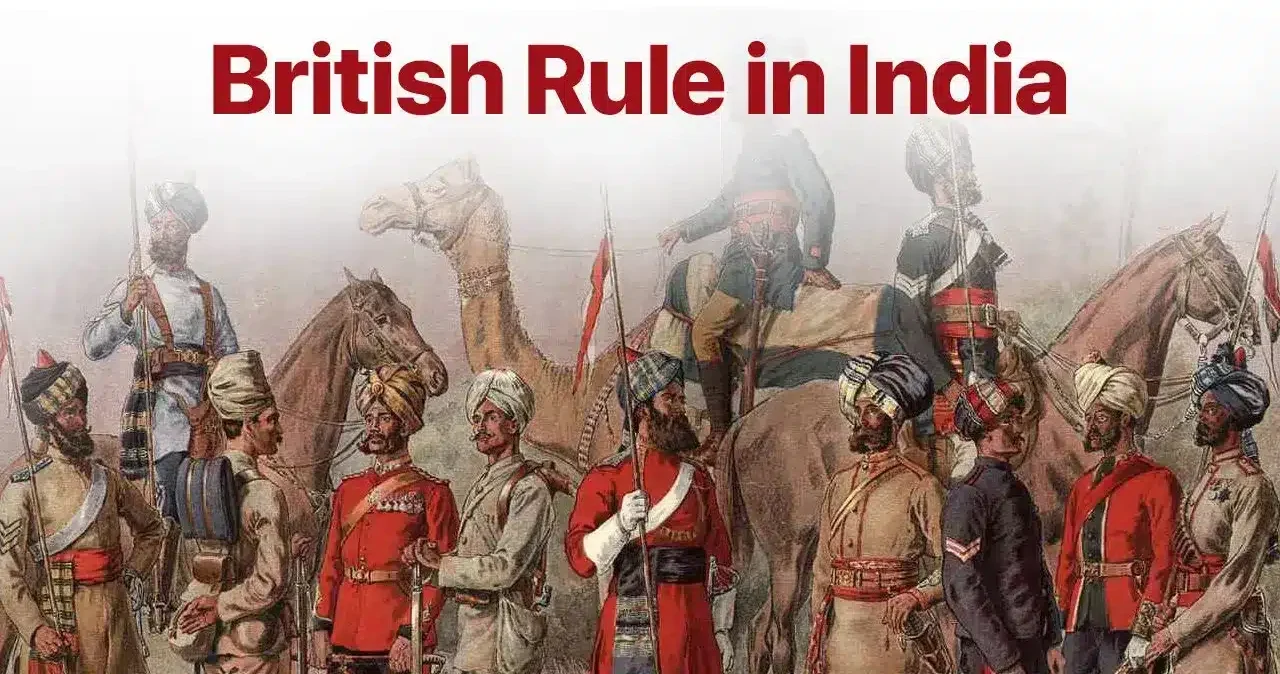The history of British colonial rule in India cannot be told without first acknowledging the pivotal role played by the British East India Company. Established in 1600, the British East India Company was not just a trading entity but a powerful force that reshaped the subcontinent’s political, social, and economic landscape for over two centuries. What began as a commercial venture soon morphed into an imperial power, setting the stage for the British Raj and leaving a legacy that still affects India today.
The Birth of the British East India Company
The British East India Company, often referred to as the “Company” in historical texts, was founded by a royal charter granted by Queen Elizabeth I in 1600. Initially, its purpose was simple: to carry out trade in the East Indies (Southeast Asia) and establish a profitable trading network with the spice-rich regions of the Far East. However, due to the Portuguese and Dutch dominance in these regions, the Company shifted its focus towards India, a land rich in resources like cotton, silk, and spices.
Over time, the Company grew into one of the most influential corporate powers in the world. The Company established its first factory in Surat (1612) and gradually spread its influence across the Indian subcontinent. Its operations were bolstered by armed forces, making it not just a commercial entity, but a military one as well. This laid the foundation for the eventual political dominance of the British in India.
The Expansion of Power
The British East India Company’s power in India grew steadily, especially after the decisive Battle of Plassey in 1757. This battle marked the turning point where Robert Clive, the Company’s representative, defeated the Nawab of Bengal, Siraj-ud-Daula, and established British control over the region. This victory provided the Company with immense wealth, and Bengal became a central part of British imperial ambitions in India.
After the battle, the Company expanded its territorial control across the Indian subcontinent, using a combination of diplomacy, military conquest, and strategic alliances. By the 19th century, the British East India Company had become the de facto ruler of large portions of India. It wielded unparalleled power, controlling not only trade but also the political and military affairs of the country.
The Company’s Role in Shaping Indian Society
While the British East India Company’s primary motive was trade and profit, its influence extended far beyond commerce. The Company’s control over vast territories had significant social, cultural, and economic consequences for India.
Economic Impact: Under the Company’s rule, India’s traditional economy was significantly altered. The British imposed taxes on agriculture, forcing Indian farmers to grow cash crops like indigo and cotton, which were then exported to Britain. This shift in agricultural practices led to widespread famine and economic hardship for local farmers. The Company’s monopoly over trade also stifled local industries, particularly textiles, which had once been world-renowned.
Social and Cultural Changes: The British brought their education system, legal frameworks, and English language to India, which had lasting effects on Indian society. Western education became a symbol of social status, and English became the medium of instruction in schools. However, the British also perpetuated cultural stereotypes and undermined indigenous traditions, seeing them as inferior to Western practices.
The Decline of the British East India Company
By the early 19th century, the British East India Company had come under intense criticism, both in Britain and India. The Company’s activities were increasingly seen as exploitative, with its monopolistic practices, unfair taxation, and oppressive military campaigns leading to widespread resentment.
One of the most significant events that highlighted the Company’s unpopularity was the Indian Rebellion of 1857, often referred to as the Sepoy Mutiny. It was sparked by discontent among Indian soldiers (sepoys) in the Company’s army, but it soon spread to the general population. The rebellion, although ultimately unsuccessful, marked the beginning of the end for the British East India Company. In 1874, the British government decided to dissolve the Company and take direct control over India, establishing the British Raj.
Legacy of the British East India Company
Although the British East India Company ceased to exist, its legacy continues to shape India in numerous ways. The infrastructure, legal systems, and institutions set up by the Company laid the groundwork for the British Raj. Additionally, its impact on India’s economy, with the introduction of cash crop farming and exploitation of resources, can still be felt today.
In conclusion, the British East India Company was more than just a commercial venture; it was a harbinger of British imperialism in India. Its rise and eventual fall were pivotal in the larger narrative of colonialism, and it remains a critical chapter in India’s complex history. The Company’s legacy serves as a reminder of the far-reaching consequences of colonialism on the cultural, social, and economic fabric of nations.









